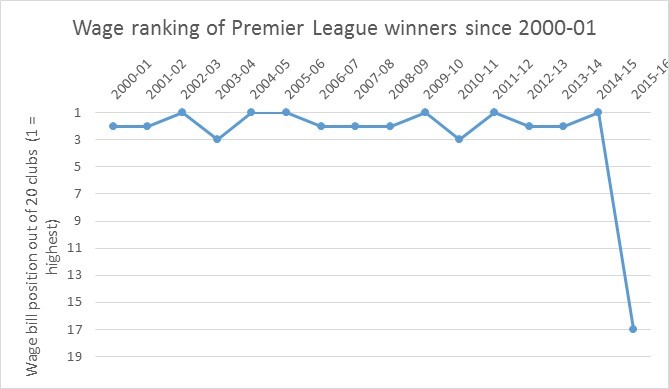As excitement for the 2016 European Championships – which begin on Friday 10th June – reaches fever pitch, football supporters across the continent will be hoping that their nation can do them proud.
The new format of the tournament means that more teams than ever will be taking part – including, for the first time, perennial minnows such as Iceland and Albania. Whilst the odds are very much against them, perhaps they will be inspired by the success of Leicester City, who recently won the English Premier League despite being 5,000-1 outsiders at the start of the season, or Greece, who won the final of the Euros in 2004 against the much-fancied host nation Portugal.
Successes like this have such long odds attached to them because of their rarity. In the world of professional football, money speaks with all too loud a voice. Evidence suggests that the richest clubs are the most likely to triumph.
Just take the Premier League as an example. Prior to Leicester’s stunning success, since the 2000-01 season the league winners had always been in the top 3 clubs in terms of total wage bill (see chart below). And in 13 of those 16 seasons, the club with the highest wage bill finished in the top 3 league positions.
In football, as in any well-functioning labour market, the most skilled workers should attract the highest wages, because there is a scarcity of supply of such labour – hot-shot strikers are few and far between compared with, say, journeyman midfielders. So rich clubs pay the highest wages to attract the most skilled players, which brings them more success.
In theory then, the highest earning teams should be expected to perform better. Can we apply this to predict the winner of the Euros? In order to do so, we would need to have access to the confidential earnings of all the players involved. However, as a reasonable proxy we can use earnings data from the football management simulation Football Manager (FM), widely considered to be the most in-depth and accurately researched game on the market.
Taking the wages from FM 2016 of the players who have been named in each country’s squad for the Euros results in the rankings as shown below. This simple measure suggests that Spain stand the best chance of going on to win the tournament, most likely to be joined in the semi-finals by Germany, England and the current favourites France. The Spain squad also has the highest median earnings, indicating a depth of quality across the squad rather than being boosted by a few very high earners at the top.
Using the rankings shown above to predict the outcome of each match, and comparing with the bookmakers’ odds, suggests that Wales (9th highest earnings, 14th favourites at the bookies) may perform better than expected and reach the quarter finals, whereas Portugal (7th highest earnings, 7th favourites) might only make it to the last 16.
Of course, there are all manner of factors that will determine each team’s chances – the unpredictability is what keeps fans coming back for more each time. But there is a reason why the top teams are so favoured, and why their players earn so much more.
Kieran Arter
Associate, Volterra Partners



